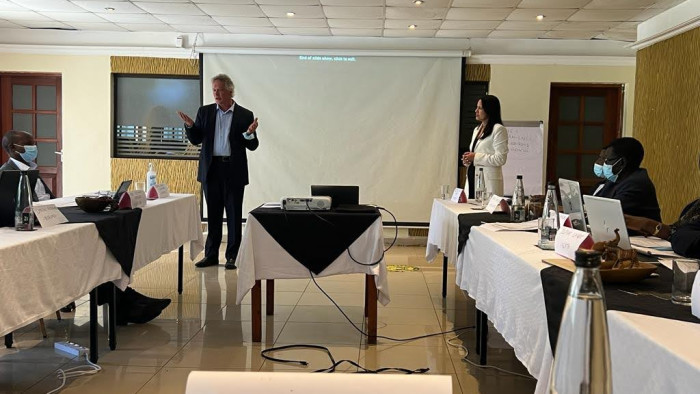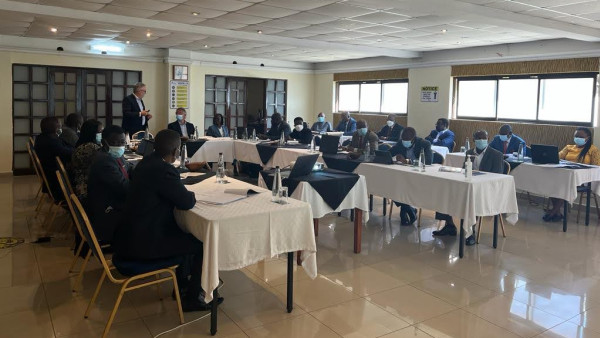
Fair Trials has delivered training to police, investigators, and prosecutors in Kenya and Mexico as part of our work to encourage states to implement the Méndez Principles and ultimately end the use of coercion and torture in the criminal justice system while providing a tool for more effective investigations.
The Principles on Effective Interviewing and Information Gathering (otherwise known as the Méndez Principles) aim to improve police practices by replacing coercive interrogations with evidence-based interviewing techniques. Based on science, law, and ethics, the principles propose a concrete alternative to interrogation methods that rely on coercion to extract confessions, vastly improving the results of investigations and fully respecting human rights.
The principles are relevant to all interviews conducted by officials responsible for gathering information, this includes law enforcement, prosecution, or intelligence agencies as well as legal professionals such as judicial authorities, and defence lawyers. They are an important tool in the effort to eradicate the use of torture during police interviews, which although always illegal, is unfortunately still regularly used in some parts of the world.
Fair Trials and the African Policing Civilian Forum (APCOF), both involved in developing the principles, are working Northumbria University to promote these principles in police settings in East Africa, with the support of ROLE UK.

Senior Legal Advisor Verónica Hinestroza, Sean Tait of APCOF and Professor Oxburgh of Northumbria University, recently met with the EAPCCO Legal Sub Committee in Kenya to discuss strategies and support for implementation and to pilot agreed processes with the Kenyan National Police Services, with the aim of promoting a rights-based approach to investigate interviewing across East African police services.
Verónica commented, “Evidence shows us that the use of torture and coercion does not elicit trustworthy information from interviewees, yet it is still commonly used in police settings around the world. The principles are an innovative and solid tool for tackling this issue.
“I hope to spend more time with police services internationally, disseminating this valuable information and working towards a fairer and more ethical criminal justice system for all.”
Further training has since been conducted with officials in Mexico. Veronica and Professor Oxburgh delivered the training alongside Professor Juan Méndez, former United Nations Special Rapporteur on Torture and Other Cruel, Inhuman or Degrading Treatment or Punishment, who spearheaded the development of these Principles.
The training was aimed at agents of the Mexico City Attorney General’s Office, in collaboration with Laboratorio de Litigio Estructural and Instituto de Formación Profesional y Estudios Superiores, with support from USAID Mexico via RED-DH.
They spoke about the importance of incorporating the ethics of the profession, scientific findings on good and ill interview practices, and the international framework of human rights, in the collection of information, particularly for investigation purposes.
The importance of interviewing techniques that were scientifically proven was widely acknowledged by all participants. This is invaluable in solving crimes in its focus to garner accurate information and protect the procedural integrity of police cases when they go to court. Further to our work with police, we are also working with defence lawyers in Argentina, Brazil and Mexico on the principles, with the hope to extend this next in Kenya.
If you would like to know more about the Méndez principles and how they are being applied internationally, please get in touch with Verónica on veronica.hinestroza@fairtrials.net.


